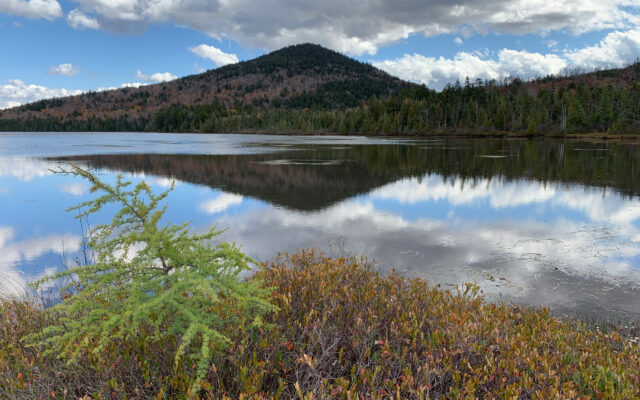
LUPC should reject Wolfden’s mining proposal
By Dan Kusnierz and Nick Bennett
The proposed Wolfden mine poses an enormous risk to the Katahdin region and the Penobscot watershed. The Penobscot Nation and the Natural Resources Council of Maine oppose the mine, as do the Houlton Band of Maliseet Indians, Maine Audubon, and the Conservation Law Foundation. We all intervened together in the Land Use Planning Commission’s (LUPC) hearing process on Wolfden’s application to rezone its land near Patten for mining. The Land Use Planning Commission, which will deliberate on Wolfden’s proposal on Dec. 13, should reject the application.Â
Over the past two decades the Penobscot Nation, in collaboration with state and federal partners, has been part of a broad-based, successful effort to improve the water quality and fisheries in the Penobscot River. This work has likely cost at least $100 million.
The proposed mine goes against this effort and threatens to undo its progress. The commission must not allow a potential water quality disaster in the headwaters of the West Branch of the Mattawamkeag River, which are also the headwaters of the Penobscot.
The Penobscot Nation testified about the negative impacts that mining pollution would have on the Tribe’s traditional uses of the Katahdin region’s lands and waters. The Natural Resources Council of Maine also intervened because of our grave concerns about the impacts of acid mine drainage on some of the state’s cleanest streams and lakes.
The Maine Department of Inland Fisheries and Wildlife considers these waters to be some of the best brook trout and landlocked salmon fisheries in the region. The LUPC must recognize the danger of allowing a zinc mine next to water resources that are so important to Maine people and tribes in Maine.
Wolfden’s pitch to the commission has essentially been “Don’t worry, everything will be fine,†but the commission should worry. This company did such an abysmal job on its first application for rezoning several years ago, commission staff recommended denial without even holding a hearing.
Not much has changed since. Wolfden has still never built or operated a mine, and it has failed to identify a single comparable mine that can do what it is promising. Wolfden’s CEO admitted this during the hearings in Millinocket, stating: “Nobody has built a mine to this standard anywhere in the world, but we will.†Wolfden’s claim is not credible.
It has only $1.6 million Canadian in working capital ($1.2 million U.S.). It is unlikely to be able to do something that big mining companies with far greater resources have never done.
In addition, this is the same CEO who told investors that: “There are no Indigenous rights in the state of Maine and so this really streamlines the permitting process.†The LUPC should not allow a company like this to operate a dangerous facility in the heart of our most treasured landscape and water resources.
The commission must also recognize the strength of public opposition to the mine. Opponents outnumbered supporters at public sessions in Millinocket and Bangor. Mainers from across the state said “no†to this mine and told the commission that the Katahdin region is worth more than a short-lived project with toxic waste that will last forever.
The Baxter State Park Authority, which almost never comments on development projects in the region, opposed the rezoning and stated: “A rezoning that would allow Wolfden’s proposed mining within this landscape, with its irreplaceable and largely protected natural treasures, represents a risk that is of great concern to BSP [Baxter State Park] and may present undue adverse impacts on existing resources,†and “this mining project runs counter to the economic plan that the Katahdin region has been developing.â€
The Penobscot Nation and the Natural Resources Council of Maine, along with the overwhelming majority of the public who commented on Wolfden’s rezoning application, agree with the Baxter State Park Authority. The commission must see that the Katahdin region is worth more as it is now than if forever tainted by a zinc mine.
Kusnierz is the water resources program manager at the Penobscot Nation. Bennett is a staff scientist at the Natural Resources Council of Maine.